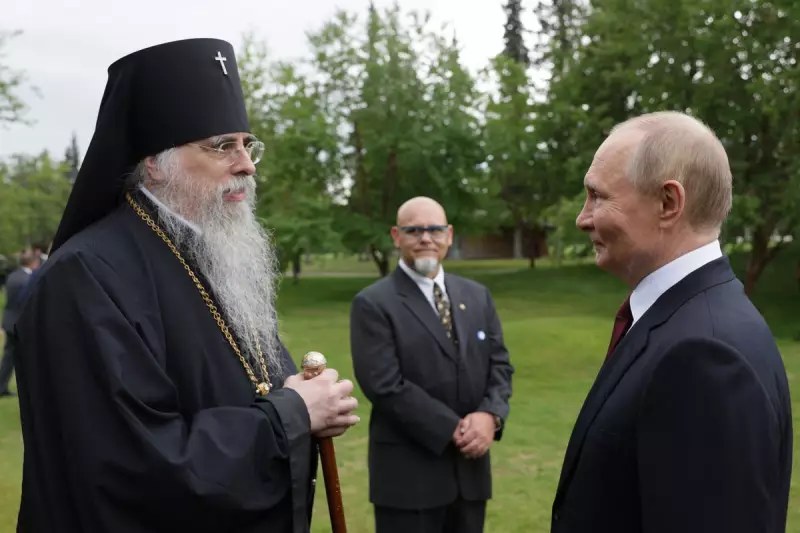
A bizarre diplomatic footnote has emerged from the depths of US-Russia relations, centred on a comment about Alaska and a subsequent apology from a high-ranking cleric directly to Vladimir Putin.
The incident, which highlights the Kremlin's acute sensitivity to historical narratives, began when Metropolitan Sergei of Starogorodsky, a senior archbishop, made a remark about the 19th-century sale of Alaska during a meeting. The nature of the comment was deemed sufficiently 'rude' or inappropriate that it prompted a swift and public act of contrition.
An Archbishop's Unexpected Apology
In a scene that underscores the blurred lines between church and state in modern Russia, Archbishop Sergei felt compelled to address the Russian president directly. "I would like to apologise for what was said about Alaska," he stated, adding, "I was somehow rudely joking." This public apology, made in front of cameras and other officials, suggests the comment touched a raw nerve within the Kremlin's carefully managed view of Russian history and territorial integrity.
The Shadow of the 1867 Sale
The episode revives the history of Alaska, a vast territory sold by the Russian Empire to the United States in 1867 for $7.2 million. While the sale is a settled matter of international law, it occasionally resurfaces in Russian political discourse, sometimes framed as a historical injustice or a temporary separation. The archbishop's 'joke' and its fallout indicate that any casual discussion of the territory, even from a religious figure, is taken extremely seriously at the highest levels of power.
A Mirror on Modern US-Russia Tensions
This unusual event serves as a microcosm of the fraught relationship between Washington and Moscow. With relations at their lowest point in decades due to the war in Ukraine and other geopolitical conflicts, even a historical footnote about a long-ago land deal becomes loaded with modern political significance. The need for a public apology reveals a culture where perceived slights against the state's narrative, however minor, must be visibly corrected.
The incident leaves observers questioning what exactly was said to warrant such a response and offers a rare, albeit strange, glimpse into the formality and pressure that defines the inner circles of Russian power.





